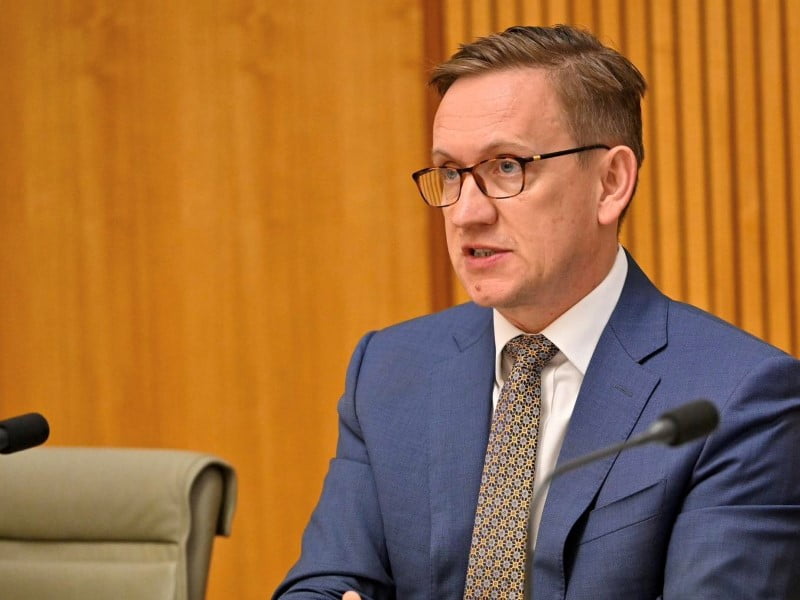Home Affairs officials, consultants and technology suppliers will be asked to explain a failed visa privatisation attempt, its abandoned replacement and their controversial procurements to Parliament’s powerful audit committee.
On Thursday, the Joint Committee of Public Accounts and Audit chaired by Labor MP Julian Hill announced a new inquiry to examine the Department of Home Affairs’ procurement of a replacement IT system for processing visa applications.
The focus is on the multistage 2017 procurement that cost the government $92 million without ever landing on a final supplier, but there is also scope for its botched replacement that began in 2020 and was abandoned last year.

“The Parliament and public should understand what went on regarding this aborted, wasteful privatisation and what lessons should be learnt given the critical importance of actually doing something to upgrade Home Affairs’ antiquated IT systems,” chair of the committee Julian Hill said.
The Coalition government’s plan to outsource visa processing was floated in 2017, with a request for tender for a ‘Global Digital Platform’ released in December 2018.
The plan and the procurement were criticised as an attempted privatisation of a core government function that would benefit multinationals and Liberal power broker Scott Briggs, who was part of a shortlisted bidding consortium.
Under pressure, the government abandoned the procurement in 2020 after the Department of Home Affairs had spent almost $92 million on the “co-design and development of business requirements”, the request for tender process, related advice and IT readiness costs.
External parties, like consultancies, legal and advisory firms, accounted for most of this, netting just under $65 million. The Boston Consulting Group alone was paid $43.5 million.
Home Affairs also provided at least $2 million to the two consortia of shortlisted bidders, which were the Australian Visa Processing consortium (Ellerston Capital, PwC, Qantas Ventures, NAB and Pacific Blue Capital) and a joint-bid from Australia Post and Accenture.
During this process, Mr Briggs led the Australian Visa Processing consortium and both the then-Prime Minister Scott Morrison and Immigration Minister David Coleman recused themselves from the decision-making process due to their close ties to him.
The project and procurement was heavily criticised by a Senate committee that found the privatisation via an “opaque” tender should be abandoned.
The Global Digital Platform was abandoned a month later in 2020 and the government announced it would start fresh with a new Permissions Capability.
The Permissions Capability would start with the digitisation of incoming passenger cards as part of Australia reopening its borders that were slammed shut during the pandemic.
But the supplier for this platform, Accenture, struggled to deliver and, as revealed by InnovationAus.com in April, the entire project was abandoned with another $16.5 million spent.
An audit of the Permissions Capability procurement released in June has found a number of “shortcomings”, including that Home Affairs had “departed” from the approach it set out in the initial request for tender and had struggled to demonstrate value for money.
The audit committee’s new inquiry will look at the procurement processes for both failed projects, according to its terms of reference, including the “conduct of entities or persons involved –or interested — in that procurement process” and “any related matters”.
“The previous Government wasted $92 million on a failed attempt to privatise visa processing, yet after they abandoned their tender process still forced Home Affairs to bear a $180 million cut from fake savings that never materialised,” Mr Hill said.
“The Auditor-General examined some of these issues in a report tabled this year, but further questions that have emerged warrant a stand-alone inquiry.”
Do you know more? Contact James Riley via Email.

